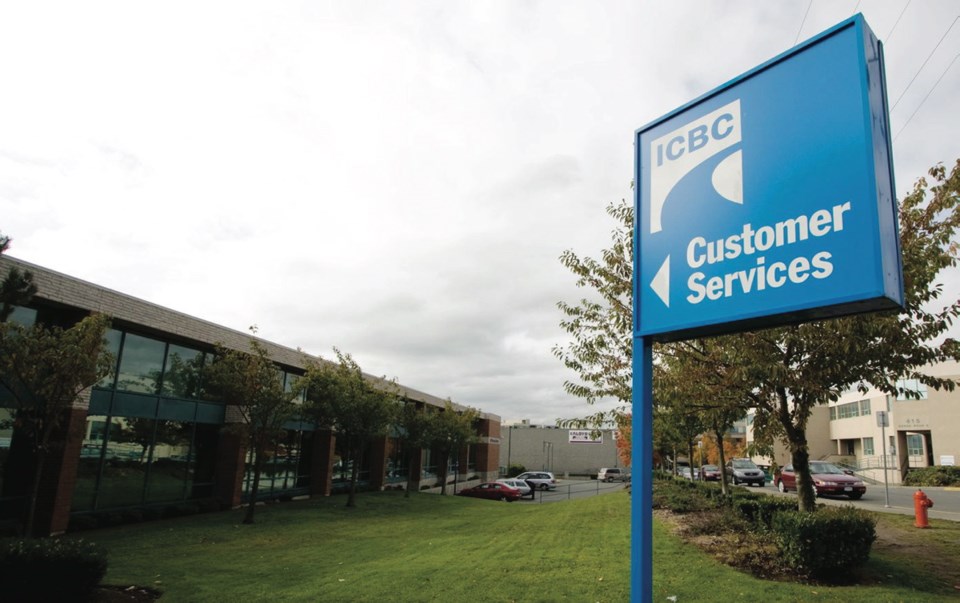The Insurance Corp. of sa���ʴ�ý says its financial picture is improving four months after it put a cap on pain and suffering claims for minor injuries in car crashes.
ICBC CEO Nicolas Jimenez said preliminary figures show the corporation on track to meet its financial targets for the year, which call for a small loss after two years of huge losses.
“It is early,” Jimenez said Tuesday. “We have a sense of what we’re seeing, but also enough judgment to say let’s not get excited too early.”
The number of people hiring personal injury lawyers has dropped significantly. Roughly 80 per cent of all crash claims are being directed away from courts and to a new resolution tribunal. Motorists in a crash are successfully accessing a host of improved medical benefits offered by ICBC, Jimenez said.
ICBC lost almost $2.5 billion in the past two years as claims, legal fees and repair costs skyrocketed. The sa���ʴ�ý government intervened on April 1 to set a $5,500 cap on pain and suffering claims for minor injuries.
The cap is supposed to save ICBC $1 billion this fiscal year and stabilize the Crown auto-insurance corporation’s finances to a $50-million loss in 2019-20.
“Anecdotally, I’d say we’re on track, which is to still lose $50 million,” Jimenez said. “We’re optimistic but we’re also realistic. So we’re watching.”
ICBC’s losses grew so large in the past two years that it threatened the stability of the provincial budget.
“ICBC is still running at a loss, but we’re starting to see some small improvements,” Finance Minister Carole James said last month during a news conference on the government’s year-end finances.
“A great deal of work still needs to happen.” ICBC “continues to be a large risk in the budget,” James said.
Several problems remain.
One is a court challenge by the Trial Lawyers Association of sa���ʴ�ý against retroactive limits that government placed on the use of medical experts in trials. A court ruling is expected soon.
If the government loses, ICBC will have to record a $400 million to $500 million loss this year, Jimenez said.
The Trial Lawyers Association declined to comment Tuesday.
Another problem is roughly 110,000 crash claims that were filed before the April 1 cap and have yet to be settled.
ICBC estimates those claims to amount to $12 billion, but costs are rising because of a jump in claimants arguing for compensation due to harm to their future employment and wages.
Courts are increasingly awarding judgments in the hundreds of thousands of dollars, said Jimenez.
“If this is a trend, and we’re starting to see that it is, we’re going to have continued pressure on all those old claims that start out very small and turn into something much bigger.”
Another group affected by the changes are sa���ʴ�ý doctors, who now determine whether a person has a minor injury (defined by ICBC as sprains, bruises, cuts and whiplash where symptoms last fewer than 12 months and nothing is broken) or if it persists long enough to fall outside the $5,500 cap. Concussions and mental health injuries are also considered minor, but fall outside the cap if symptoms persist more than four months.
The crash cap came with ICBC expanding coverage for medical treatments to $300,000, providing full benefits to at-fault drivers, paying higher rates for services such as physiotherapists, and pre-approving services such as massage therapy.
Physicians are supportive of those changes, and so far there have been few problems, said Dr. Kathleen Ross, president of Doctors of sa���ʴ�ý “These are very early days, so from a treating practitioner’s point of view having easier access and earlier access to care in my view is better for patients,” she said. “But we don’t have a whole lot of experience yet with some of the other aspects of the work.”
The minor-injury cap was part of what ICBC called the first phase of a “generational shift” in auto insurance this year. The second phase is in September when ICBC redesigns the way risk is allocated when determining insurance rates, which could drive up premiums for some motorists.
The NDP government is also under pressure to end ICBC’s monopoly on basic auto insurance. The Insurance Bureau of sa���ʴ�ý, which represents private insurance companies, released a report Tuesday that said sa���ʴ�ý motorists pay on average the highest auto insurance premiums in the country. The Opposition sa���ʴ�ý Liberals have called on the government to do a full review of ICBC’s role and suggested private competition should be allowed.



